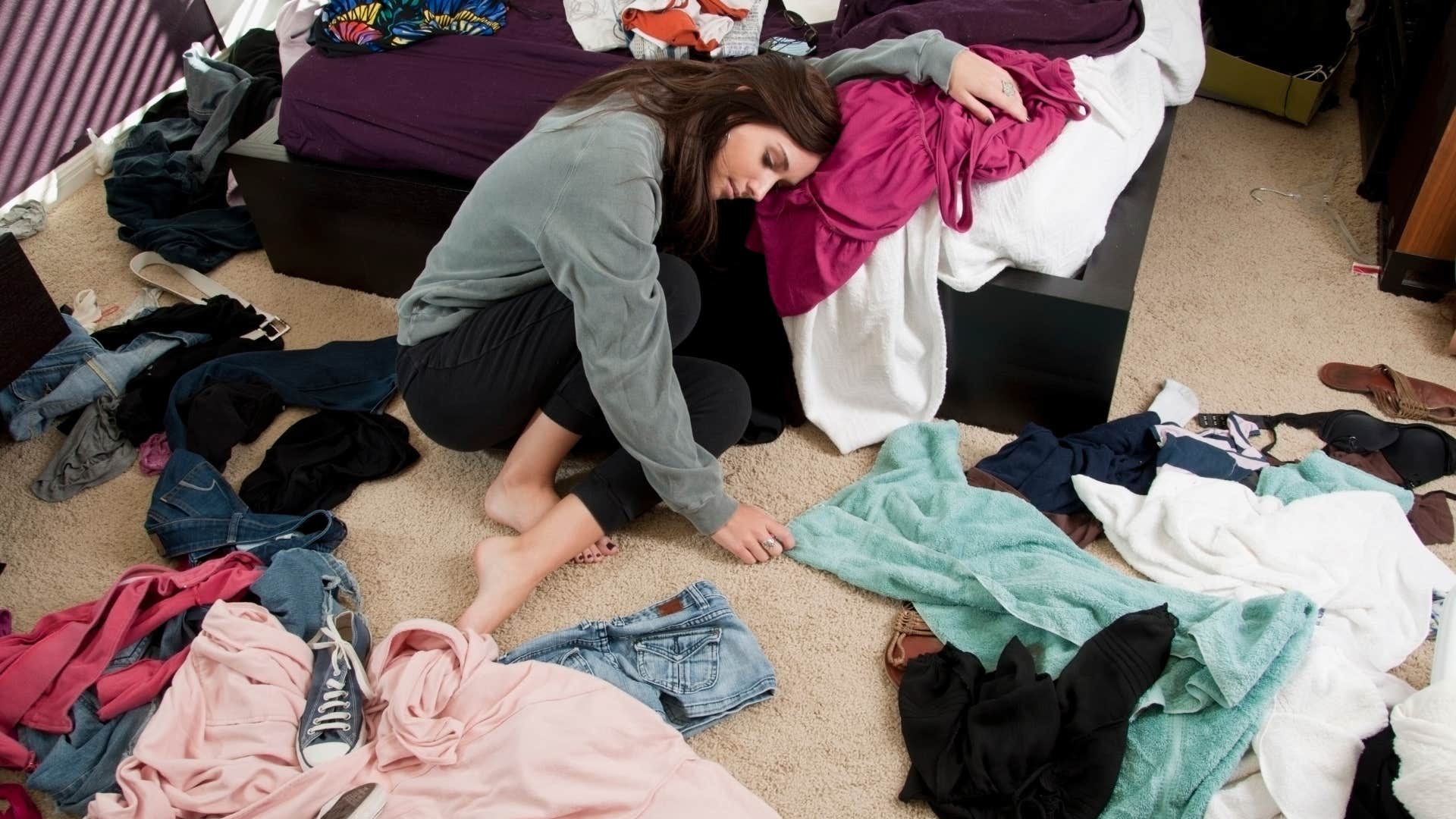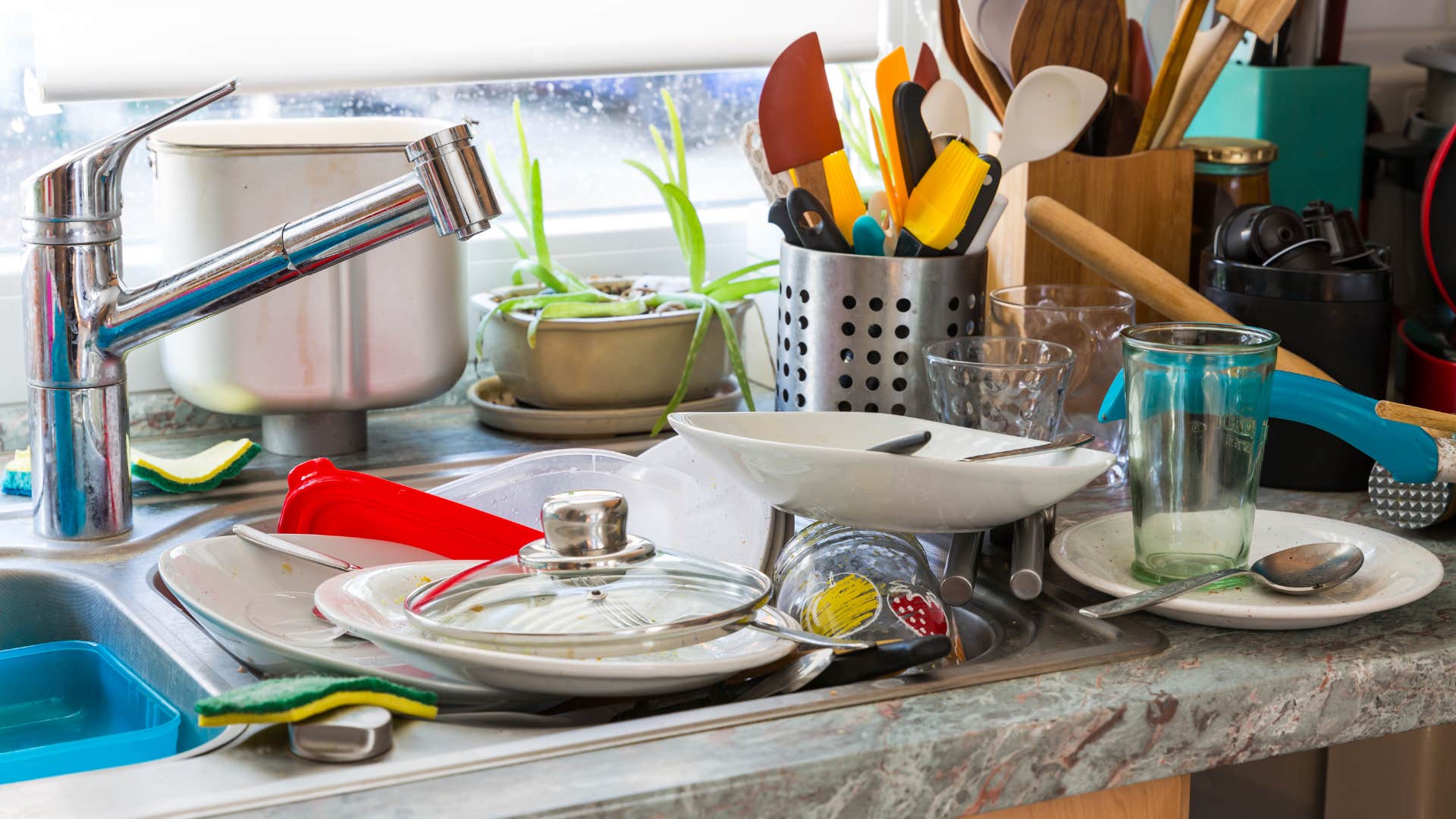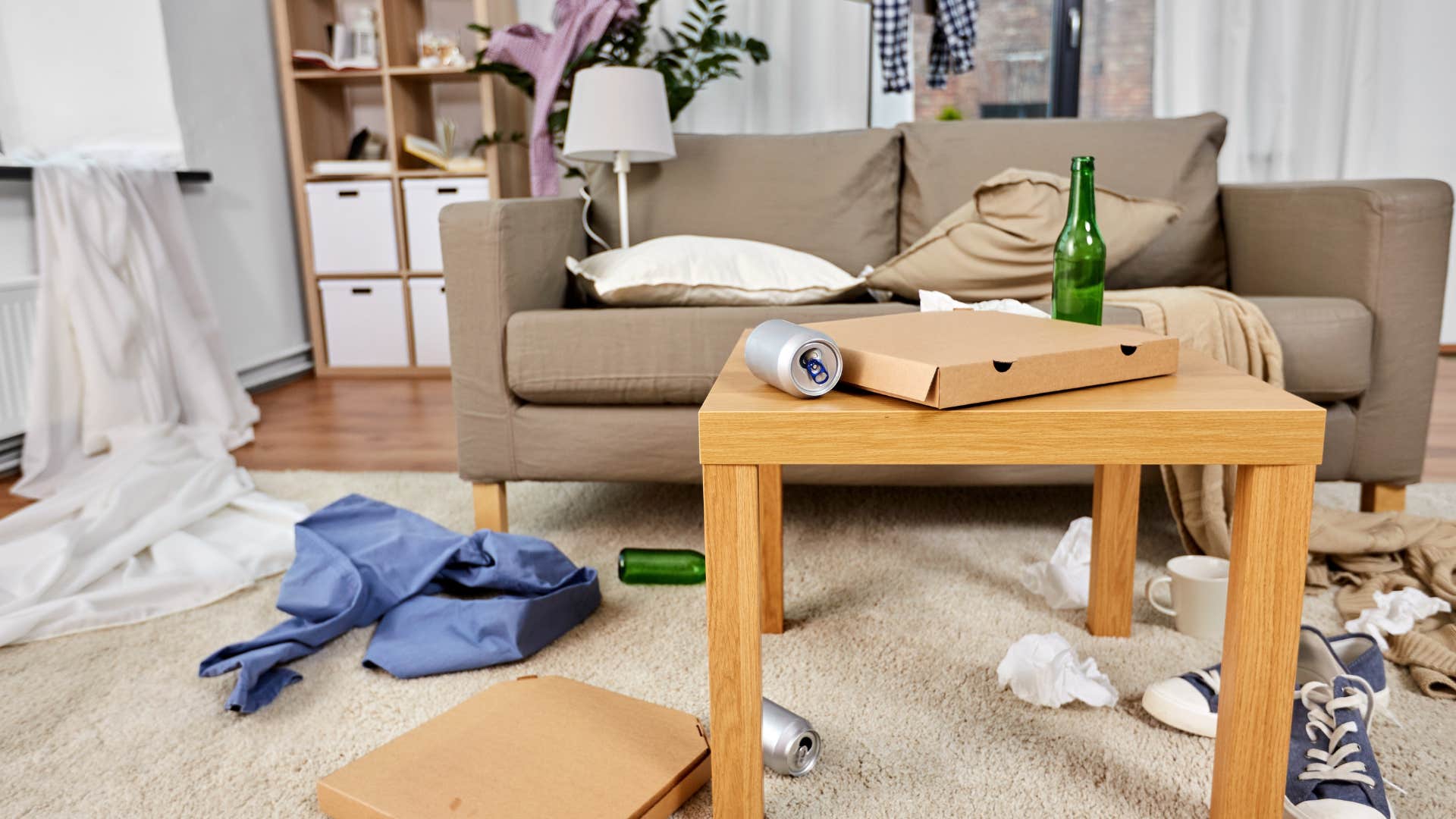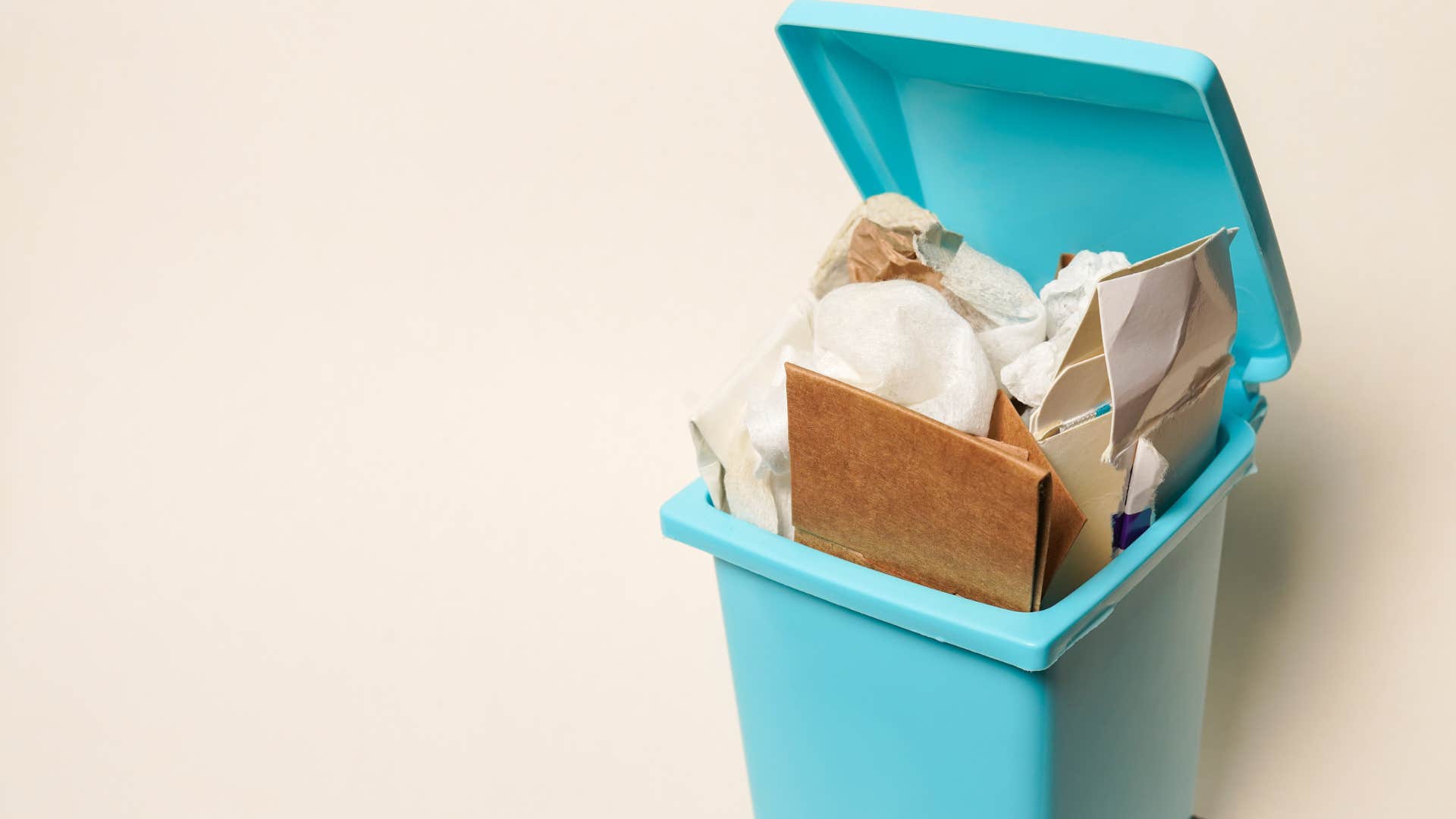If You Notice These 11 Things In Your Adult Child’s House, They're Struggling More Than They Admit
They might need help, but feel too ashamed to ask for it.
 Caftor / Shutterstock
Caftor / Shutterstock You’ve always wanted what's best for your child. When you envisioned their future, you saw them living in a nice house with a good job. They likely had children of their own in this dream. However, the economy and other circumstances have made making this dream a reality for millennials nearly impossible. You taught them that college was essential, and while they learned a lot, they are likely strapped with debilitating student loan debt. And if you notice certain things in your adult child's house, there's a good chance that they're struggling more than they want to admit.
“We’re living in two separate economies,” Freddie Smith, an economic content creator, told CNBC. “The middle class, unfortunately, is dead for millennials and Gen Zers. Or, best-case scenario, the goalpost has just moved and it’s still obtainable, but you have to make over six figures to have that middle-class life.” These circumstances have made living a comfortable life difficult for people’s adult children. They may be struggling more than they admit. Tough economic times can also lead to mental health difficulties. All of these things working against them can make them feel like they are drowning.
If you notice these 11 things in your adult child’s house, they're struggling more than they admit
1. Overwhelming clutter
 Aflo Images from アフロ(Aflo)via Canva
Aflo Images from アフロ(Aflo)via Canva
When you walk into your adult child’s home and notice there is an overwhelming amount of clutter, they are clearly suffering. If you remember them keeping an orderly place and are suddenly watching it unravel, things might be worse than you thought. When someone is going through a difficult time, finding the time and energy to keep their space clean can dwindle.
If your adult child was once a clean freak and is now letting their home fall into disrepair, it's time to ask them if they need help. Often, being vulnerable with your parents can be difficult. They are worried that they are disappointing you.
2. An empty fridge
 Rockaa from Getty Images Signature via Canva
Rockaa from Getty Images Signature via Canva
According to NPR, the cost of groceries has increased over the years, and there appears to be no sign of relief on the horizon. "I try to stick to cheaper meals, which isn't always healthy," A banker named Rebecca White told the publication. "Sometimes I'll skip breakfast and then just have lunch and dinner so that I don't have to buy another meal." She added that she has noticed that once they rise, she has rarely seen the prices come down.
This could very well be impacting your adult children. They may not tell you that they are struggling to buy food for themselves, but there will be signs. If you notice an empty fridge, or them coming over for dinner more often, they could be struggling more than they would like to admit.
3. Bills piling up
 Africa images via Canva
Africa images via Canva
Amongst the clutter, you may notice piles of unopened mail. Sure, it can be an array of junk mail that doesn’t matter, but occasionally, they could be avoiding financial warnings. If they’ve stopped being able to pay for their rent or credit cards, they are likely getting notices in the mail. Even if their primary payment method is online, most companies will send reminders and issue bills through snail mail when necessary.
It’s not uncommon for adults to struggle so badly that they are unable to pay their bills. Much like asking for food, they will be too embarrassed to reach out for help. They believe that once they reach a certain age, asking their parents for money is no longer an option. If you visit their home and see bills piling up, it's likely they're going through a difficult time.
4. Broken items
 Scott Brennan from Getty Images via Canva
Scott Brennan from Getty Images via Canva
Have you walked into the home of your adult child and noticed things were in disrepair? Maybe light bulbs have burned out, and they are sitting in the dark. There could be a leaky faucet or a running toilet that they haven’t bothered to fix. This could be a sign that they are struggling either mentally or financially. Sometimes it can be both.
Most likely, fixing broken items is just not a priority. When someone is facing a difficult time, they have other more pressing issues. Sometimes, they can shut down completely, falling into a deep depression. If you notice broken items around their home, there may be more going on in their life than they are sharing.
5. Unmade beds
 DAPA Images via Canva
DAPA Images via Canva
This one may sound silly, but several small things contribute to good mental health. One of those things, researchers have found, is making the bed. It may sound like a simple task, but for people who are struggling, finding the energy to do so can be difficult. A constantly unmade bed can show that your adult child is suffering.
People who are struggling mentally may also have a poor sleep pattern. “Poor sleep is also directly linked to poorer health outcomes, such as heart disease, high blood pressure, and even death. Research shows sleep deprivation also negatively impacts mood and the ability to problem-solve, think, and react quickly and creatively. So, if making the bed might improve sleep, there are lots of good health reasons it's worth trying,” Sarah Vanbuskirk wrote for Verywell Mind. “Just as a straightened bed seems to be a powerful signal (for some, at least) that it's time to start your day, a made bed may be more pleasant to slip into at bedtime.”
6. Lack of decor
 romanbabakin via Canva
romanbabakin via Canva
If you notice their home is rather empty or the decor is lacking, they may be struggling mentally or financially. Maybe they don’t care enough to decorate their home, or they can’t afford it. Either way, science shows that having a well-decorated home is good for the mind. If they are failing to do so, and you know they usually would be interested in having decor in their home, they may be going through a difficult time.
“For as long as humans have been decorating our homes, the positive mental health benefits of core interior design choices have been understood and even popularized without any actual research,” says Kelley Bostain for Ballard Design. “In just the past twenty or so years, researchers studying core elements of interior design on mental health have begun noticing consistent results when measuring long/short-term effects on symptoms of anxiety, depression, and overall mood—a growing field of study officially known as 'environmental psychology.’”
If someone’s environment is lacking, they could be struggling more than they care to admit.
7. Unpleasant smells
 AustinArtist from Getty Images Signature via Canva
AustinArtist from Getty Images Signature via Canva
Have you ever walked into someone's home and noticed that the overall scent was just off? It could smell dirty, or like they were using some sort of air freshener to mask a smell, and it just wasn’t working. If they have pets or plants, they may be slightly neglecting them, which could be the source of the smell. It could be an unscooped litterbox or a rotting plant. Regardless of the reason, the scent is a sign that things just aren’t right.
This can be a hard conversation to have. No one wants to be told their home smells bad. If you are noticing it, it’s time to say something, no matter how awkward it may be.
8. Dirty dishes
 brebca from Getty Images via Canva
brebca from Getty Images via Canva
You can look at this as a positive sign in a way. If dirty dishes are piling up in the sink, they are eating. However, failing to clean their plates after a meal can be a serious sign that things aren’t as good as they may tell you they are. Dirty dishes can be a serious health problem.
“Piles of dirty dishes can be a potential danger zone, particularly if they’re swimming under murky, soapy water. Any sharp knives or broken objects are hidden below the surface, and you run the risk of injuring yourself when you come back to them,” says Benchmarx Kitchens. “Washing items one by one or placing them straight into the dishwasher removes this hazard and keeps your kitchen tidy. It’s also worth noting that floating dishes and cutlery may end up scratching and spoiling the finish of your sink if you aren’t careful.”
9. Unused personal care items
 Selim Çetin from Pexels via Canva
Selim Çetin from Pexels via Canva
Have you noticed their bar of soap is lasting a little too long? Maybe they haven’t replaced their deodorant in a long time. These can all be signs that someone is struggling. This is especially relevant when someone is in the depths of a depression. Personal care can be one of the first tasks they let go of when they lose the energy to care for themselves properly.
“In my work in the health care profession, I have found that difficulty with hygiene tasks can be an early warning sign of mental illness. I have seen how bipolar disorder can present in its early stages in the form of changed feelings about daily hygiene practices,” says Ivory Smith for the National Alliance on Mental Illness. “This symptom can seemingly come 'out of nowhere.’ When bipolar depression or mania are looming, symptoms can come in like a roaring tiger — or they can sneak up gently and go unnoticed until you find yourself in the pit of the deepest valley.”
10. Signs you are their first guest in a long time
 Syda Productions via Canva
Syda Productions via Canva
When someone is used to having guests over, their home will show it. It’ll be tidy. There will be fresh blankets on the couch. Likely, there’s a set table that shows they’re ready to entertain. If these things are missing from your adult child's home, they may be struggling more than they let on.
Those who are used to having people over often are critical of the details in their home. Their bookshelf will be meticulously organized. They will have their floors freshly vacuumed. If their place is in total disarray, it might be time to offer some help.
11. Overflowing trash cans
 nastyaphphotos via Canva
nastyaphphotos via Canva
An overflowing trash can could be a major contributor to unpleasant smells in your adult child’s home. I get it. One task that I dread doing is taking out the trash. It’s far from glamorous and can be annoying. However, I can’t let it overflow because it breeds bugs and bacteria, and the smell is truly unpleasant. Someone who neglects to do this task is likely dealing with more than they’ve been comfortable sharing.
“Overflowing waste bins are an ideal breeding ground for bacteria, insects, and vermin. The flies that visit the garbage are also the same flies that roam around your lunch buffet and drop their offspring on your plate,” writes Ecube Labs. “By doing so, they increase the risk of you contracting with salmonella, which causes typhoid fever, food poisoning, enteric fever, gastroenteritis, and other major illnesses.”
Haley Van Horn is a freelance writer with a master’s degree in Humanities, living in Los Angeles. Her focus includes entertainment and lifestyle stories.

